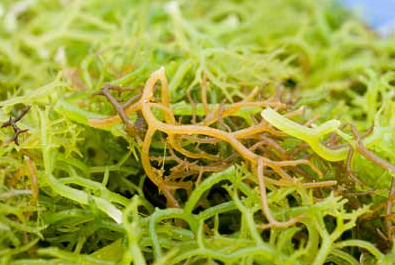Author: Eugene Sung
Raise your hand if you were under the impression that the majority of the products sold at Whole Foods or Trader Joe’s is good for you. *Raises hand* Yes, I’ll admit it…I’m a Whole Foods whore. While there are a lot of healthy and nutritious items at these stores, don’t be so quick to believe that everything you’re buying is good for you. A perfect example of this is a common food additive called carrageenan, which can be found in items sold at ‘organic’ supermarkets.
Carrageenan is derived from red seaweed and is found in two different forms. The degraded form is used to promote inflammation in lab animals in order to test the effectiveness of anti-inflammatory drugs. The undegraded form is used as a food additive and proponents of carrageenan claim that this form is safe for human consumption. However, Dr. Stephen Hanauer and Dr. Joanne Tobacman from Chicago have been conducting studies on the safety of carrageenan. Dr. Tobacman concluded that “carrageenan exposure clearly causes inflammation; the amount of carrageenan in food products is sufficient to cause inflammation; and degraded carrageenan and food-grade carrageenan are both harmful.”
So just how harmful is carrageenan? When carrageenan enters the body, its chemical structure triggers an immune response in our bodies. The immune system sees it as a dangerous invader because it does not recognize the chemical makeup. Over time, if our immune response is constantly being triggered, then this can lead to inflammation. It is widely accepted among doctors, researchers and scientists that prolonged inflammation leads to chronic disease such as heart disease, cancer and arthritis. In addition, scientists have recently discovered that carrageenan exposure reduces the activity of certain beneficial enzymes in human cells.
What can YOU do? Simple…read the ingredients! If it has carrageenan, just put it down and keep shopping. For an extensive list of which items contain and don’t contain carrageenan, visit The Cornucopia Institute’s carrageenan shopping guide.

Post reprinted with permission from the author.
About the author: Eugene Sung is a chiropractic physican based in Los Angeles. His specialties are evidence-based protocols for musculoskeletal injuries and nutrition therapy. He can be reached here.







